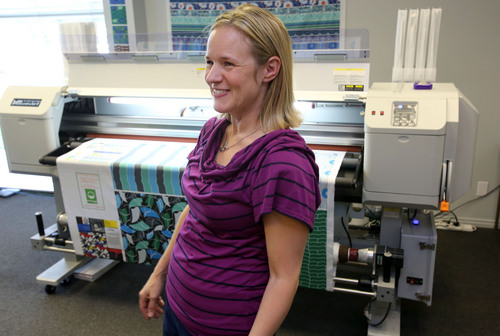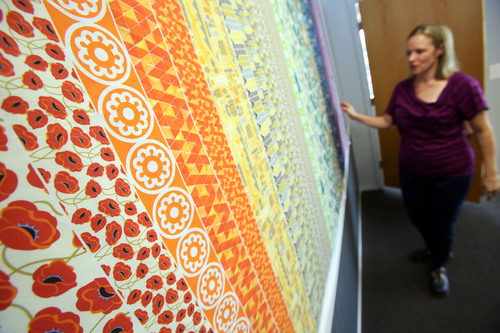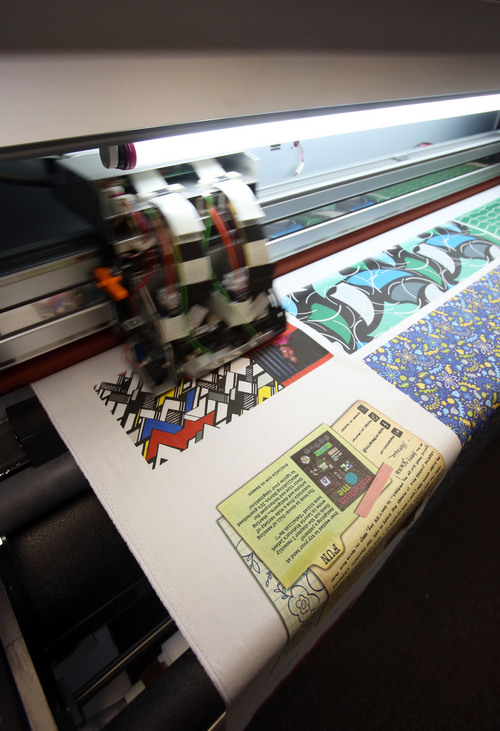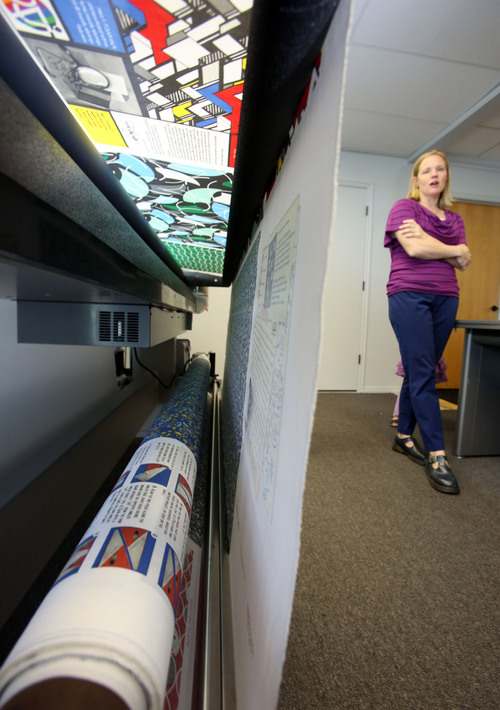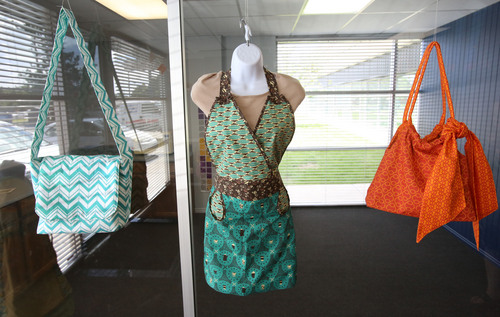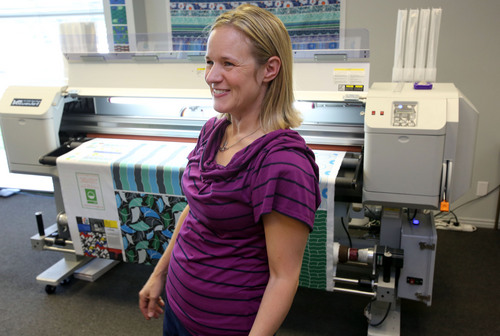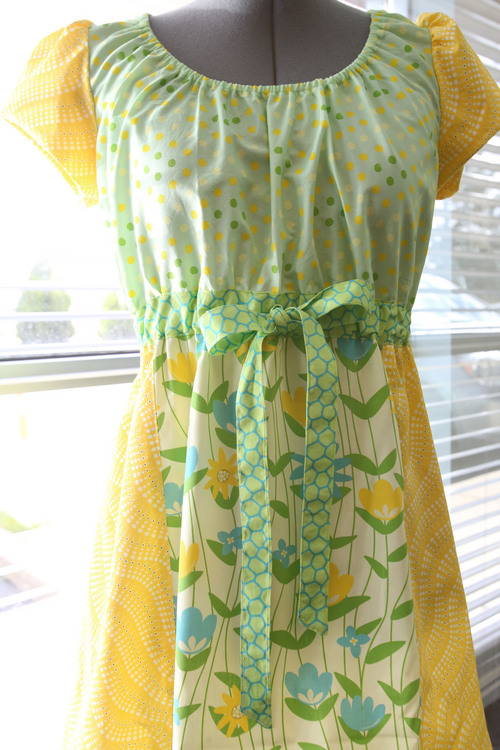This is an archived article that was published on sltrib.com in 2013, and information in the article may be outdated. It is provided only for personal research purposes and may not be reprinted.
Woods Cross • Seven-month-old Modern Yardage likely isn't the largest or the most established company to become one of six finalists in Martha Stewart's "American Made" competition this year.
The startup that digitally prints fabric on demand that customers select off its website consists of owner April Cobb, printer operations manager Laura Christensen, and April's husband Jay Cobb, who came up with the original idea for the business, and a single inkjet fabric printer.
"It's an extraordinary thing to be a finalist in this contest," said April Cobb, who has an MBA from Brigham Young University and has been involved in the sewing industry for many years. "We are still building a customer base and we have new technology. Other contestants have more years and more followers."
Modern Yardage is one of six Stewart finalists that produce products made in America out of more than 2,000 that were initially nominated. People from all over the country vote for their favorites by going to www.marthastewart.com">http://www.marthastewart.com and then clicking on the American Made button. The deadline to vote is Monday.
The Woods Cross company uses 17 designers in the United States, South America and the United Kingdom to come up with fabric patterns that are posted on its website, www.modernyardage.com">http://www.modernyardage.com. Potential customers select prints they like from the website and place an order, which can sometimes consist of several designs found on the site.
At that point, Christensen lays out the order on the computer, which then is transferred to the printer where it is printed on 100 percent cotton poplin fabric. The printed pattern is heat set. Then the cloth is folded and shipped to the ordering address, usually a home. In most cases, the entire process takes about a week.
"Traditionally, it takes between six months to a year for a pattern to go from design to shelves," explained April Cobb. "For us, it's a matter of a week or two … We can respond to the market immediately as well as to the requests of our customer."
More traditional fabric companies must invest up front in fabric designs and print large quantities, gambling that they will be sold. If they don't sell, fabric and quilt shops then are stuck holding large bolts of cloth that are often discounted. Modern Yardage claims the cost of its fabric can compete with most retail shops, with most fabrics costing $10.99 per yard.
"We can give our artists more freedom in color and design," said April Cobb. "If a consumer doesn't purchase it, we are not out of any money."
If a customer likes a print pattern but would like it in a different color, designers will work with the customer and recolor as ordered.
"It's a matter of how quickly we can get designs up from our designers," said Christensen. "We see they designs, and they approve them after we print a sample. Then we put them up on our website."
April Cobb, who has been selling sewn items at the Downtown Farmers Market for the past eight years, said that about 40 sewing bloggers have posted items about the new company since May.
If the company were to win the $10,000 in prize money offered by Martha Stewart, the Cobbs would hire marketers, website workers and employees to process orders. Plus, the publicity that would include being featured in Stewart's magazine and on her radio show could also help the company grow.
"We are a traditional manufacturing company and a retailer as well," said April Cobb. "That's why we are unique."
Twitter: @tribtomwharton


